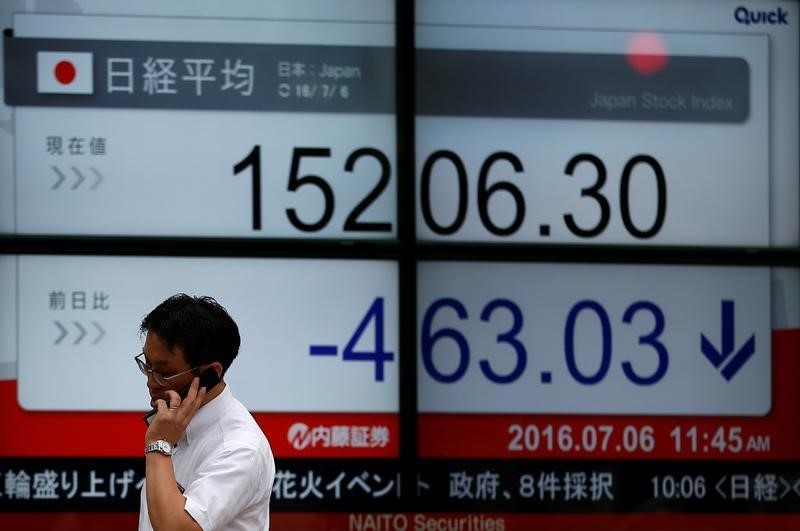This post was originally published on this site

Investing.com — Most Asian stock markets fell on Friday and were set for weekly losses as hotter-than-expected U.S. inflation data and more hawkish signals from the Federal Reserve drove up concerns that interest rates will keep rising.
Technology-heavy bourses were among the worst performers for the day, with Hong Kong’s Hang Seng index, South Korea’s KOSPI and the Taiwan Weighted index down between 0.4% and 0.8%.
The Hang Seng was also the worst performer in Asia this week, down 1.5%.
China’s Shanghai Shenzhen CSI 300 and Shanghai Composite indexes fell 0.5% and 0.2%, respectively, even as government officials declared a “decisive victory” over COVID-19, citing a low fatality rate. The announcement comes nearly two months after the country ended its zero-COVID policy.
But recent economic indicators from China showed that certain facets of the country were still struggling to recover from the impact of the pandemic. To this end, the government has rolled out a slew of stimulus measures to support growth.
Broader Asian stocks also fell as U.S. producer price index data read higher than expected for January, coming in line with a red-hot consumer price index reading for the month. The readings drove up fears that the Fed will maintain its hawkish rhetoric and drive interest rates higher.
Fed officials James Bullard and Loretta Mester furthered this notion in separate speeches, and also warned that the central bank could raise interest rates at a sharper pace in the coming months, if inflation remains sticky.
Rising interest rates bode poorly for Asian stocks by limiting the amount of foreign capital flowing into the region. Regional central banks are also expected to hike rates in tandem with the Fed, tightening local liquidity conditions.
Japan’s Nikkei 225 index fell 0.7%, and was also set to snap five straight weeks of gains amid continued uncertainty over the path of monetary policy under new Bank of Japan Governor Kazuo Ueda.
India’s Nifty 50 and BSE Sensex 30 indexes fell around 0.2% each Friday. But the two were among the few outliers in Asia, up 0.2% and 0.7%, respectively, this week, amid some recovery in shares related to conglomerate Adani Group. The conglomerate’s flagship firm, Adani Enterprises Ltd (NS:ADEL), logged strong quarterly earnings this week.
Thailand stocks slipped 0.5% as data showed the Southeast Asian economy unexpectedly contracted in the fourth quarter.


